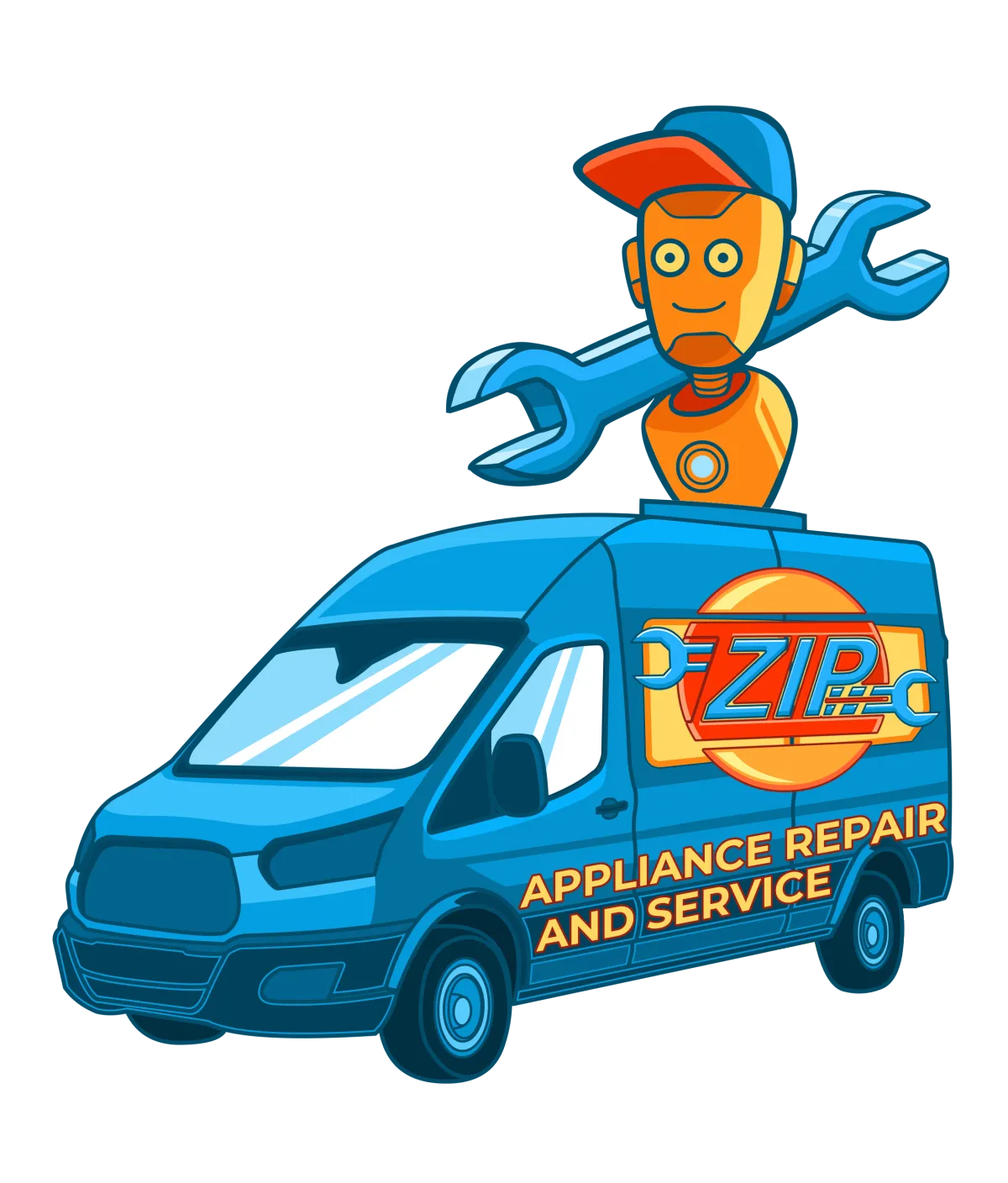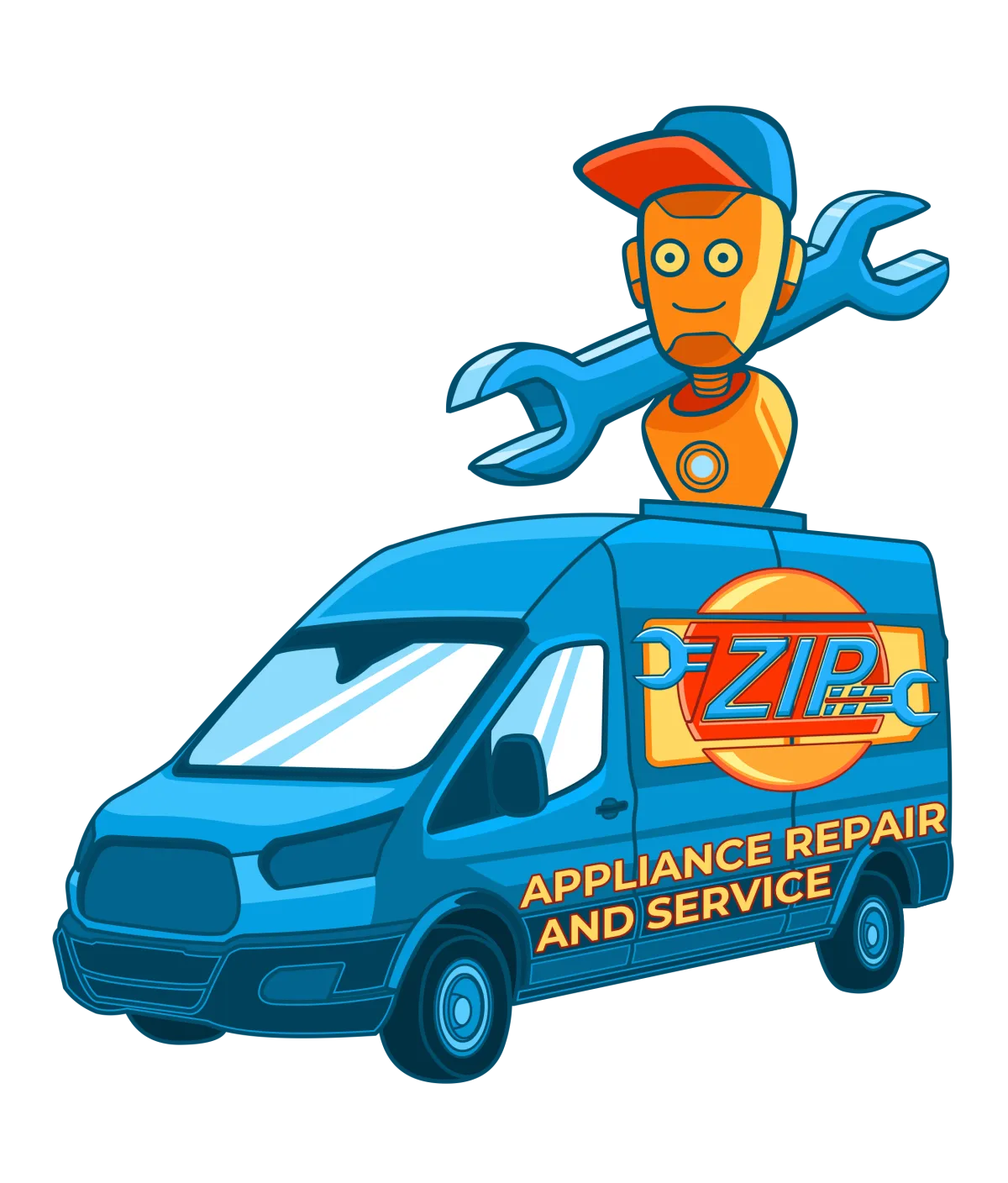THE FASTEST TOOLS IN TOWN
ZIP APPLIANCE REPAIR & SERVICE
Phone: (559) 272-4265
Phone: (559) 272-4265
Appliance Repair Tips For Fresno, CA Residents

DIY vs. Professional Repair: Fix or Replace Your Microwave?
"Knowing when to repair or replace your microwave can save you time, money, and frustration. Make the smart choice with expert tips on DIY vs. professional repair!" - Appliance Boss
Introduction
Microwaves have become an essential part of modern kitchens, making meal prep quick and convenient. But what happens when your trusty appliance starts acting up? Should you attempt a DIY repair or invest in a brand-new unit? The decision isn’t always straightforward.
The Dilemma: Repairing vs. Replacing a Microwave
A faulty microwave can be frustrating, especially when you rely on it daily. While some issues can be fixed with a simple adjustment, others may signal a deeper problem. Choosing between repair and replacement depends on several factors, including the severity of the issue, cost considerations, and safety concerns.
Why Making the Right Choice Matters
Ignoring minor issues can lead to bigger problems, potentially turning your microwave into a fire hazard. On the other hand, spending too much on repairs when a replacement is the better option can waste both time and money. Making the right call ensures your kitchen remains safe, efficient, and cost-effective.

How This Guide Will Help You Decide
This guide breaks down common microwave problems, DIY repair solutions, when to call a professional, and when it’s best to replace your microwave. By the end, you’ll have the knowledge to make a confident and informed decision.
Common Microwave Problems: Can You Fix Them?
Signs Your Microwave Needs Attention
Before deciding whether to repair or replace your microwave, watch for these warning signs:
The microwave won’t turn on.
It’s making unusual buzzing, clicking, or grinding noises.
Food is heating unevenly or not at all.
The turntable isn’t rotating.
Sparks or burning smells are coming from inside.
The keypad or display isn’t functioning properly.
The Most Common Issues That Can Be Repaired
Some microwave problems can be resolved with a simple fix, such as:
Blown fuse replacement – If your microwave suddenly stops working, a blown fuse may be the culprit.
Door switch issues – A faulty door switch can prevent your microwave from running properly.
Turntable motor failure – If the rotating plate stops spinning, the motor may need a quick replacement.
Problems That Usually Mean It’s Time for a Replacement
Not all microwave issues are worth fixing. If your microwave has any of the following problems, a replacement may be the best option:
Magnetron failure – The component responsible for heating food is expensive to replace.
Repeated electrical issues – If your microwave frequently trips the circuit breaker, it could signal internal wiring damage.
Significant physical damage – Cracks, burns, or broken door seals pose serious safety risks.
DIY Microwave Repairs: What You Can Fix Yourself
Fixing a Microwave That Won’t Turn On
Before assuming the worst, check if the microwave is plugged in and test the outlet with another appliance. If the outlet works, you may need to replace a blown fuse.
How to Replace a Blown Fuse Safely
Unplug the microwave and discharge any stored electricity.
Locate the fuse (typically found behind the control panel).
Remove the blown fuse and replace it with an identical one.
Reassemble the microwave and test it.
What to Do If Your Microwave Stops Heating
If your microwave turns on but doesn’t heat food, the issue could be with the magnetron, high-voltage diode, or capacitor. Unfortunately, these are dangerous components to handle and may require professional repair.
Fixing a Sparking Microwave: Common Causes and Solutions
Remove any metal objects inside the microwave.
Check for food splatters or grease buildup, which can cause arcing.
Inspect the waveguide cover for burns or damage and replace if necessary.
Replacing a Faulty Turntable Motor
If your microwave’s turntable stops rotating, the motor might be worn out. A new motor is easy to install and can restore even heating.
When DIY Repairs Are a Bad Idea
Dangers of Working with High-Voltage Components
Microwaves contain high-voltage capacitors that store electricity even when unplugged. Touching the wrong part could result in a severe shock or even fatal injury.
Why a Microwave’s Magnetron Is Too Risky to Handle
The magnetron, responsible for generating microwave energy, is delicate and dangerous to replace. A faulty magnetron requires professional servicing or complete replacement.
When a Small Fix Can Lead to a Bigger Problem
Attempting to repair complex electrical components without the right tools or knowledge can cause further damage, making repairs more expensive or even rendering the microwave unusable.
The Cost Factor: Repair vs. Replacement
How to Compare Repair Costs with Buying a New Microwave
If a repair costs more than 50% of a new microwave’s price, replacement is the better option.
Consider the age of your microwave—older models may continue breaking down even after repairs.
When Spending on Repairs Is Worth It
If your microwave is relatively new and the issue is minor, a quick repair can extend its life at a lower cost than buying a new one.
Budget-Friendly Microwave Replacement Options
Many modern microwaves offer advanced features at affordable prices. Look for energy-efficient models with warranties for long-term savings.
When to Call a Professional for Microwave Repair
Signs That You Need Expert Help
Your microwave has a persistent burning smell.
It repeatedly trips the circuit breaker.
Electrical sparks occur even after cleaning and maintenance.
How to Find a Reliable Appliance Repair Technician
Check customer reviews, ask for referrals, and ensure the technician is certified in microwave repairs.
What to Expect from a Professional Repair Service
A qualified technician will diagnose the issue, provide a cost estimate, and safely repair the microwave using industry-standard tools and techniques.
Understanding Microwave Lifespan: When Replacement Is Best
How Long Do Microwaves Typically Last?
The average lifespan of a microwave is 7–10 years, depending on usage and maintenance.
Wear and Tear Signs That Indicate It’s Time for a New Microwave
The door seal is loose or damaged.
The keypad is unresponsive.
Food takes much longer to heat than before.
Upgrading to a More Energy-Efficient Model
Newer microwaves use less power, reducing energy costs while offering enhanced safety features.
Choosing a New Microwave: What to Look For
Size, Wattage, and Features That Matter
Consider capacity and power level based on your cooking needs.
Look for convection or inverter technology for better cooking efficiency.
Smart Microwaves: Are They Worth It?
Smart microwaves offer Wi-Fi connectivity, voice control, and preset cooking functions but come at a higher price point.
Best Brands for Long-Lasting Performance
Trusted brands like Panasonic, LG, and Samsung offer durable and feature-rich microwave options.
Preventing Future Microwave Issues
Routine Maintenance to Extend Your Microwave’s Life
Clean the interior regularly to prevent food buildup.
Inspect the door seal for wear and tear.
Proper Usage Tips to Avoid Costly Repairs
Never run the microwave empty.
Use microwave-safe containers to avoid damaging the unit.
Why Power Surges Can Damage Your Microwave and How to Protect It
Using a surge protector can prevent sudden voltage spikes from damaging sensitive internal components.
Final Thoughts
Making the Smart Choice: Repair or Replace?
Deciding whether to fix or replace your microwave comes down to cost, safety, and convenience. If the repair is minor and cost-effective, fixing it can extend its life. However, if the microwave is old, frequently malfunctioning, or has a major component failure, replacing it with a modern, energy-efficient model is the smarter choice.
Where to Get Help with Repairs or Finding a New Microwave
If you’re dealing with a stubborn microwave issue and need professional assistance, our team at Zip Appliance Repair and Service is here to help. Whether it’s a simple repair or expert advice on choosing a new unit, we provide reliable and affordable appliance repair services.
Ensuring You Get the Best Value for Your Money
We understand how important it is to have a functional kitchen appliance. That’s why we offer expert microwave repair services to ensure you get the best value without unnecessary expenses. Contact us today at (559) 272-4265 or visit our website at fresno.ziprepairservice.com to schedule a service. Let us help you keep your home running smoothly!

DIY vs. Professional Repair: Fix or Replace Your Microwave?
"Knowing when to repair or replace your microwave can save you time, money, and frustration. Make the smart choice with expert tips on DIY vs. professional repair!" - Appliance Boss
Introduction
Microwaves have become an essential part of modern kitchens, making meal prep quick and convenient. But what happens when your trusty appliance starts acting up? Should you attempt a DIY repair or invest in a brand-new unit? The decision isn’t always straightforward.
The Dilemma: Repairing vs. Replacing a Microwave
A faulty microwave can be frustrating, especially when you rely on it daily. While some issues can be fixed with a simple adjustment, others may signal a deeper problem. Choosing between repair and replacement depends on several factors, including the severity of the issue, cost considerations, and safety concerns.
Why Making the Right Choice Matters
Ignoring minor issues can lead to bigger problems, potentially turning your microwave into a fire hazard. On the other hand, spending too much on repairs when a replacement is the better option can waste both time and money. Making the right call ensures your kitchen remains safe, efficient, and cost-effective.

How This Guide Will Help You Decide
This guide breaks down common microwave problems, DIY repair solutions, when to call a professional, and when it’s best to replace your microwave. By the end, you’ll have the knowledge to make a confident and informed decision.
Common Microwave Problems: Can You Fix Them?
Signs Your Microwave Needs Attention
Before deciding whether to repair or replace your microwave, watch for these warning signs:
The microwave won’t turn on.
It’s making unusual buzzing, clicking, or grinding noises.
Food is heating unevenly or not at all.
The turntable isn’t rotating.
Sparks or burning smells are coming from inside.
The keypad or display isn’t functioning properly.
The Most Common Issues That Can Be Repaired
Some microwave problems can be resolved with a simple fix, such as:
Blown fuse replacement – If your microwave suddenly stops working, a blown fuse may be the culprit.
Door switch issues – A faulty door switch can prevent your microwave from running properly.
Turntable motor failure – If the rotating plate stops spinning, the motor may need a quick replacement.
Problems That Usually Mean It’s Time for a Replacement
Not all microwave issues are worth fixing. If your microwave has any of the following problems, a replacement may be the best option:
Magnetron failure – The component responsible for heating food is expensive to replace.
Repeated electrical issues – If your microwave frequently trips the circuit breaker, it could signal internal wiring damage.
Significant physical damage – Cracks, burns, or broken door seals pose serious safety risks.
DIY Microwave Repairs: What You Can Fix Yourself
Fixing a Microwave That Won’t Turn On
Before assuming the worst, check if the microwave is plugged in and test the outlet with another appliance. If the outlet works, you may need to replace a blown fuse.
How to Replace a Blown Fuse Safely
Unplug the microwave and discharge any stored electricity.
Locate the fuse (typically found behind the control panel).
Remove the blown fuse and replace it with an identical one.
Reassemble the microwave and test it.
What to Do If Your Microwave Stops Heating
If your microwave turns on but doesn’t heat food, the issue could be with the magnetron, high-voltage diode, or capacitor. Unfortunately, these are dangerous components to handle and may require professional repair.
Fixing a Sparking Microwave: Common Causes and Solutions
Remove any metal objects inside the microwave.
Check for food splatters or grease buildup, which can cause arcing.
Inspect the waveguide cover for burns or damage and replace if necessary.
Replacing a Faulty Turntable Motor
If your microwave’s turntable stops rotating, the motor might be worn out. A new motor is easy to install and can restore even heating.
When DIY Repairs Are a Bad Idea
Dangers of Working with High-Voltage Components
Microwaves contain high-voltage capacitors that store electricity even when unplugged. Touching the wrong part could result in a severe shock or even fatal injury.
Why a Microwave’s Magnetron Is Too Risky to Handle
The magnetron, responsible for generating microwave energy, is delicate and dangerous to replace. A faulty magnetron requires professional servicing or complete replacement.
When a Small Fix Can Lead to a Bigger Problem
Attempting to repair complex electrical components without the right tools or knowledge can cause further damage, making repairs more expensive or even rendering the microwave unusable.
The Cost Factor: Repair vs. Replacement
How to Compare Repair Costs with Buying a New Microwave
If a repair costs more than 50% of a new microwave’s price, replacement is the better option.
Consider the age of your microwave—older models may continue breaking down even after repairs.
When Spending on Repairs Is Worth It
If your microwave is relatively new and the issue is minor, a quick repair can extend its life at a lower cost than buying a new one.
Budget-Friendly Microwave Replacement Options
Many modern microwaves offer advanced features at affordable prices. Look for energy-efficient models with warranties for long-term savings.
When to Call a Professional for Microwave Repair
Signs That You Need Expert Help
Your microwave has a persistent burning smell.
It repeatedly trips the circuit breaker.
Electrical sparks occur even after cleaning and maintenance.
How to Find a Reliable Appliance Repair Technician
Check customer reviews, ask for referrals, and ensure the technician is certified in microwave repairs.
What to Expect from a Professional Repair Service
A qualified technician will diagnose the issue, provide a cost estimate, and safely repair the microwave using industry-standard tools and techniques.
Understanding Microwave Lifespan: When Replacement Is Best
How Long Do Microwaves Typically Last?
The average lifespan of a microwave is 7–10 years, depending on usage and maintenance.
Wear and Tear Signs That Indicate It’s Time for a New Microwave
The door seal is loose or damaged.
The keypad is unresponsive.
Food takes much longer to heat than before.
Upgrading to a More Energy-Efficient Model
Newer microwaves use less power, reducing energy costs while offering enhanced safety features.
Choosing a New Microwave: What to Look For
Size, Wattage, and Features That Matter
Consider capacity and power level based on your cooking needs.
Look for convection or inverter technology for better cooking efficiency.
Smart Microwaves: Are They Worth It?
Smart microwaves offer Wi-Fi connectivity, voice control, and preset cooking functions but come at a higher price point.
Best Brands for Long-Lasting Performance
Trusted brands like Panasonic, LG, and Samsung offer durable and feature-rich microwave options.
Preventing Future Microwave Issues
Routine Maintenance to Extend Your Microwave’s Life
Clean the interior regularly to prevent food buildup.
Inspect the door seal for wear and tear.
Proper Usage Tips to Avoid Costly Repairs
Never run the microwave empty.
Use microwave-safe containers to avoid damaging the unit.
Why Power Surges Can Damage Your Microwave and How to Protect It
Using a surge protector can prevent sudden voltage spikes from damaging sensitive internal components.
Final Thoughts
Making the Smart Choice: Repair or Replace?
Deciding whether to fix or replace your microwave comes down to cost, safety, and convenience. If the repair is minor and cost-effective, fixing it can extend its life. However, if the microwave is old, frequently malfunctioning, or has a major component failure, replacing it with a modern, energy-efficient model is the smarter choice.
Where to Get Help with Repairs or Finding a New Microwave
If you’re dealing with a stubborn microwave issue and need professional assistance, our team at Zip Appliance Repair and Service is here to help. Whether it’s a simple repair or expert advice on choosing a new unit, we provide reliable and affordable appliance repair services.
Ensuring You Get the Best Value for Your Money
We understand how important it is to have a functional kitchen appliance. That’s why we offer expert microwave repair services to ensure you get the best value without unnecessary expenses. Contact us today at (559) 272-4265 or visit our website at fresno.ziprepairservice.com to schedule a service. Let us help you keep your home running smoothly!
If your dryer has been giving you problems, contact Zip Appliance Repair & Service at (559) 272-4265

Appliance Repair In A Zip
If you need a dryer repair call our Team at (559) 272-4265, or visit our online scheduling page to request service.
Appliance Repair
HAVE A QUESTION, CALL (559) 272-4265

Online Offers
Take advantage of our online discount offers - save time and money...

Residential & Commercial appliances
See what our company can do for you

Appliance Repair Tips
If your appliance is not working properly...

1405 Commercial Way ste 100
Bakersfield, CA 93309
Lic # 1116346
Equipment We Sevice
- A Call To Confirm Your Appointment Time
- A Email Detailing Your Assigned Technician
- Information Needed Before The Repair Can Be Started
- An Estimate Of Work To Be Done
© 2025 ZIP APPLIANCE REPAIR & SERVICE LLC







